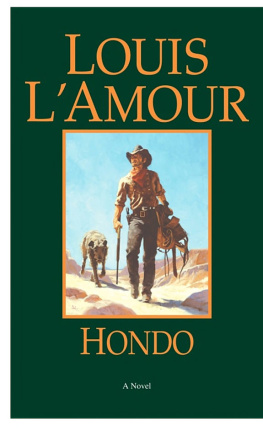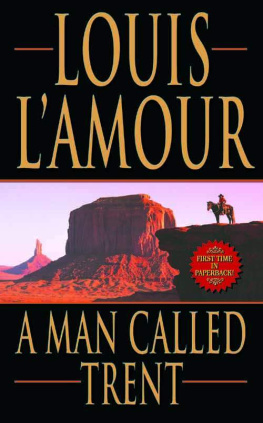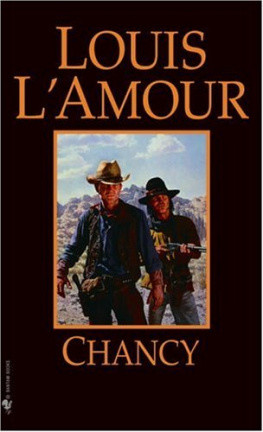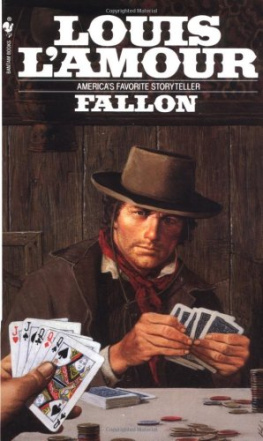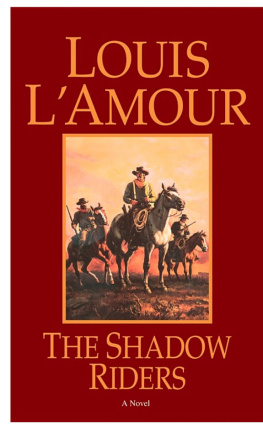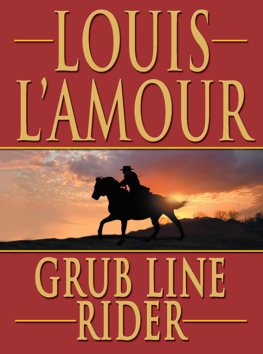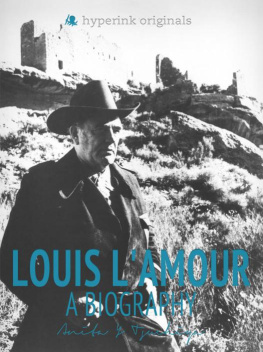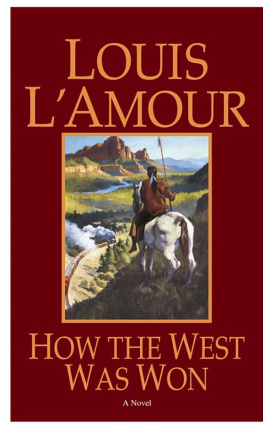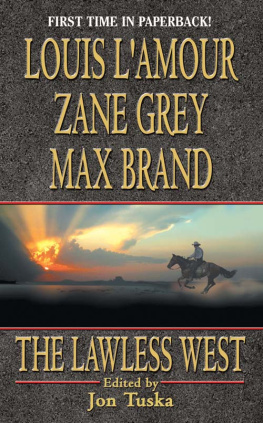Louis LAmour - West of Dodge
Here you can read online Louis LAmour - West of Dodge full text of the book (entire story) in english for free. Download pdf and epub, get meaning, cover and reviews about this ebook. year: 2005, publisher: Bantam, genre: Detective and thriller. Description of the work, (preface) as well as reviews are available. Best literature library LitArk.com created for fans of good reading and offers a wide selection of genres:
Romance novel
Science fiction
Adventure
Detective
Science
History
Home and family
Prose
Art
Politics
Computer
Non-fiction
Religion
Business
Children
Humor
Choose a favorite category and find really read worthwhile books. Enjoy immersion in the world of imagination, feel the emotions of the characters or learn something new for yourself, make an fascinating discovery.

- Book:West of Dodge
- Author:
- Publisher:Bantam
- Genre:
- Year:2005
- Rating:5 / 5
- Favourites:Add to favourites
- Your mark:
- 100
- 1
- 2
- 3
- 4
- 5
West of Dodge: summary, description and annotation
We offer to read an annotation, description, summary or preface (depends on what the author of the book "West of Dodge" wrote himself). If you haven't found the necessary information about the book — write in the comments, we will try to find it.
West of Dodge — read online for free the complete book (whole text) full work
Below is the text of the book, divided by pages. System saving the place of the last page read, allows you to conveniently read the book "West of Dodge" online for free, without having to search again every time where you left off. Put a bookmark, and you can go to the page where you finished reading at any time.
Font size:
Interval:
Bookmark:
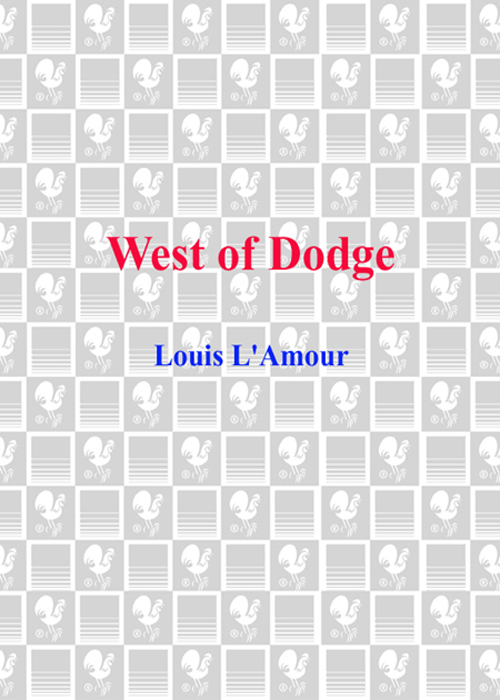
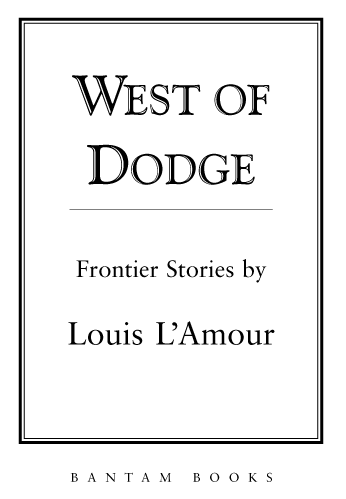
Contents
Introduction
F OR THE PAST couple of years I have been working on a biography of my father. It is a long and complicated process; he left behind no single document that explains the where or when of his life, let alone the reasons why he did many of the amazing things that he did. What little correspondence he was able to save over the years paints one picture. His personal journals, many of which were lost or not kept up on a regular basis, fill in some other areas. The writing he did in Yondering and Education of a Wandering Man I have found to be very useful but slightly slanted in the direction of whatever message he was trying to deliver at the moment.
I have tried to get as close to the story that I will be telling as is feasible. I have also tried to remain objective: Dad was fifty-three when I was born; when he was in his twenties he was a differentsometimes almost unrecognizablecharacter. The world that he lived in, the world that formed him, was a differentalmost unrecognizableworld.
So far, I have traveled the trail that he followed when he was forced to walk out of the Mojave Desert. Ive searched out the houses, hotel rooms, boardinghouses, auto courts, lumber piles, and hobo jungles where Louis slept as a youth. Ive talked my way through the security gates that now seal the waterfronts and rail yards. Ive turned off the interstate and driven miles on the forgotten dirt roads that our nation had instead of highways seventy years ago. I have followed the winding route that my grandparents, my father, and his adopted brother traveled between 1923 and 1931, when they packed their last possessions in an old touring car and set out across the American West on a fruitless search for a better life.
One of the first steps in getting a handle on this project was going through every single thing my father left behind and examining each one carefully for clues. After he died I had spent quite a few weeks sorting out all of the stuff he left behind. That process had simply amounted to packing everything away in boxes labeled with one of five or six different categories, like Fan Mail, Pieces of Manuscripts, Film and TV Treatments. Now I had to go back to those boxes and sort through everything page by page. It was sort of like being an archeologist digging a hole in the ground with a spoon and a toothbrush.
I found a tiny yellowed date book from 1924 that briefly documented the period when he became separated from his parents and walked and hitchhiked across New Mexico and Arizona trying to find them. Stuffed in the back of one of his 1960s-vintage journals were six pages that covered a different time period, about two weeks in June and July of 1936 when he was working as a mercenary fighting bandits and the Japanese in Shansi Province, China.
To find treasures such as these and many others, I have gone through Louiss papers carefully, examining everything I have in my possession. Ive made it a point to read through every manuscript, notebook, letter, and file that he left behind, no matter how far afield the subject seemed to be. That is how I happened to find this collection of stories.
Id finished months of checking old documents page by page and was starting to go through his other belongings, long disused briefcases, camping gear, anything that might give me a cluelike the name of a bookstore in Portland, Oregon, stamped on the inside cover of a book along with, miracle of miracles, the date. In one closet in Dads office I found a treasure trove of artifacts that I myself had stashed there years earlier when cleaning up the office after he died. A ceremonial shield from New Guinea, a marvelous machete in a sheath of carved wood that Louis had taken from an Indonesian pirate, and several boxes of old carbon paper. The writing on the boxes was in German, and I now know through examining his journals from the World War II period that he liberated this carbon paper from an office in a German aluminum factory where he was quartered near the end of the war. I was methodically going through everything, so I opened the first box to find it still half full of disintegrating fifty-year-old carbons. The second box, however, seemed to contain blank typing paper. I was about to put it down when I saw the rusty outline of a paperclip on the top sheet. It wasnt old unused paper.The box was full of short stories that had been dropped in facedown. And as I looked through them I realized that they werent like the stories in most of the other LAmour collections, old stories that had been published in the pulp magazines at one time or anotherthese were stories I didnt recognize, they were stories that had never been published before!
As I read them over carefully I began to put together the mystery of how they had come to be there. Im guessing, but the story makes the most sense if it unfolds thus: In the 1950s the fiction magazine business was dying out, replaced by paperback books and television. Luckily for Louis, he was able to break into writing paperback originals in the mid-fifties, but there was a period of transition, a time when, although he was beginning to have some luck with the novels, he was still trying to sell short stories in a dying market. The majority of these newly discovered stories are a little less violent (several make it a point to avoid the typical kill-all-the-bad-guys-in-a-final-shootout ending), more character oriented, and have less lurid titles. This suggests to me that he was aiming more toward the slick-magazine market (like The Saturday Evening Post) than the rapidly failing pulps. Hed had some success in this area. (The Burning Hills was first seen as a Post serial), but the slick market was becoming more and more crowded with ex-pulp authors and was publishing a good deal less fiction itself, and so my theory is these stories were never sold.
What all this means to you is that what we have here is a collection of Louis LAmours western short stories that have never before been published. They are stories of higher quality than we have been able to release in quite a few years both because they were aimed at the more literary slicks and because they were written at the end of Louiss career in short stories and so were created by a writer at the top of his form.
I found enough new stories for two or three collections. Following West of Dodge, the next two books (End of the Drive in the spring of 1997 and Monument Rock in 1998) contain a group of fine western short stories and novellas that were the genesis of some of Dads novels, like Tucker and Kiowa Trail. These are not stories like the ones that we published in the previous collections, The Rider of the Ruby Hills and Trail to Crazy Man, where the novel version was an almost identical story, only longer. These new stories are obviously experiments with the plots and themes that later became novels, but the story lines are quite differentin some cases better than the later novels.
The other group of stories that I found in that dusty box was the most exciting group for me. It was several adventure stories, but not in the comic book style of Night over the Solomons or West of Singapore. Some of these stories are more or less dramatized accounts of adventures from Louiss life, like the stories in Yondering, or they are pure fiction but are drawn from places hed been or people hed known. Not only did I find these to be interesting reading, but occasionally they contained clues to Louiss life and the people he knew.
Next pageFont size:
Interval:
Bookmark:
Similar books «West of Dodge»
Look at similar books to West of Dodge. We have selected literature similar in name and meaning in the hope of providing readers with more options to find new, interesting, not yet read works.
Discussion, reviews of the book West of Dodge and just readers' own opinions. Leave your comments, write what you think about the work, its meaning or the main characters. Specify what exactly you liked and what you didn't like, and why you think so.

